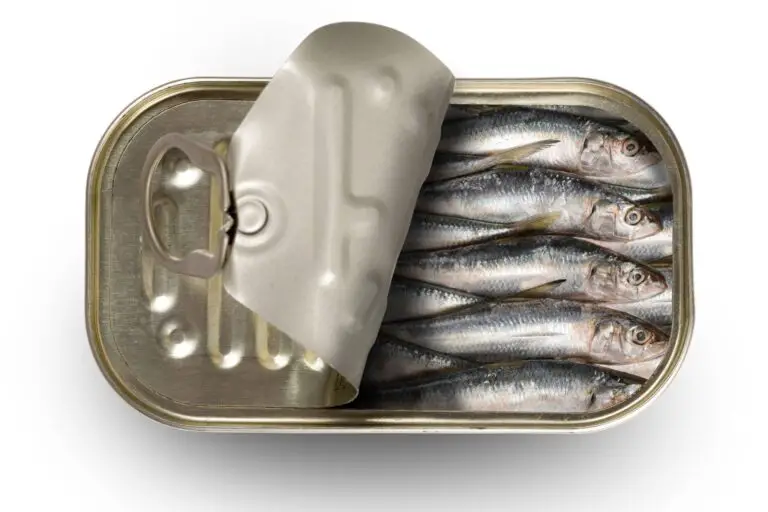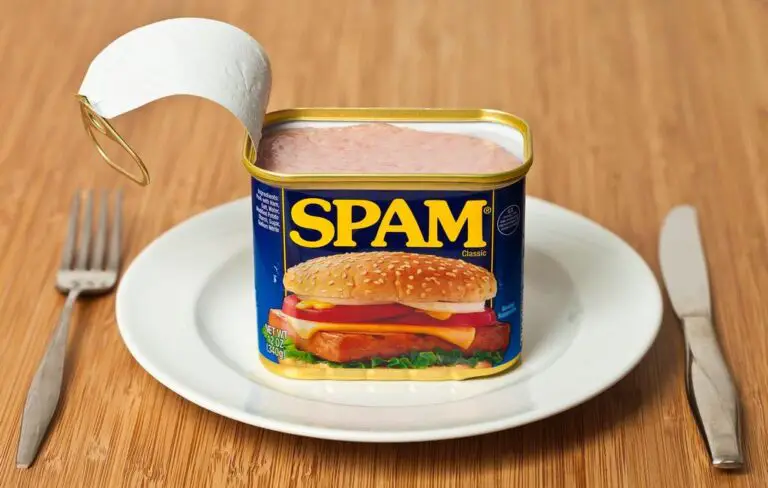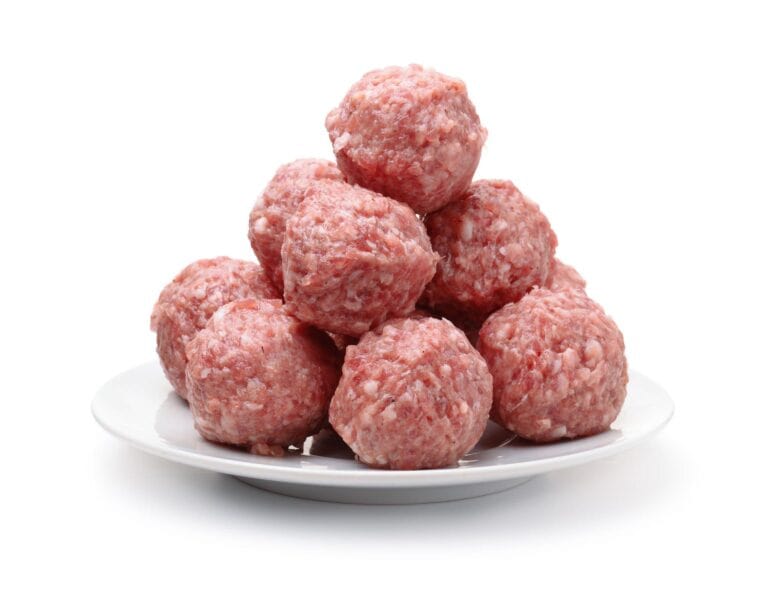What Happens If You Eat Expired Canned Food? Still Safe to Consume?
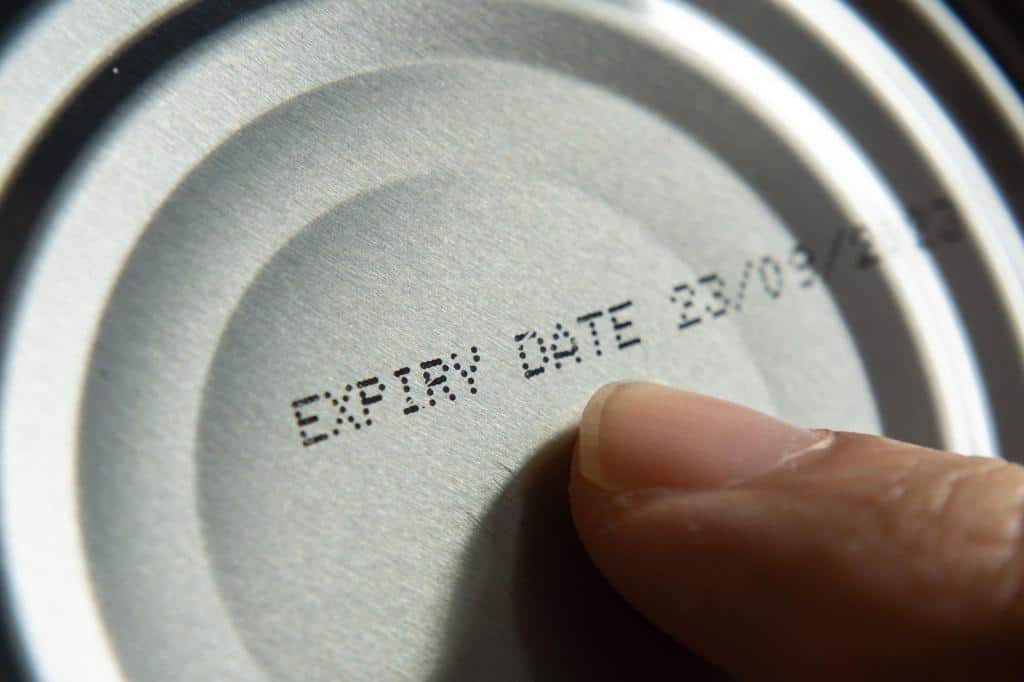
Ever found yourself staring at the back of a dusty pantry shelf, contemplating the mystery behind that can of soup that seems to have been there since the dawn of time?
We’ve all been there. The curious case of expired canned food raises eyebrows and questions, sparking a mental debate between tossing it into the bin or boldly creating a culinary masterpiece.
As a food enthusiast, I’ve navigated this kitchen dilemma, wondering about the consequences of eating expired canned goods. Join me on a journey as we unravel the secrets behind those cryptic expiration dates, exploring whether that can of beans or peaches is still a safe harbor for our taste buds or a culinary adventure better left unexplored.
What happens if you eat expired canned food? Is it still safe to consume? Let’s embark on this gastronomic odyssey and discover the answers together.
What Is Canned Food? Ingredients and Production Process
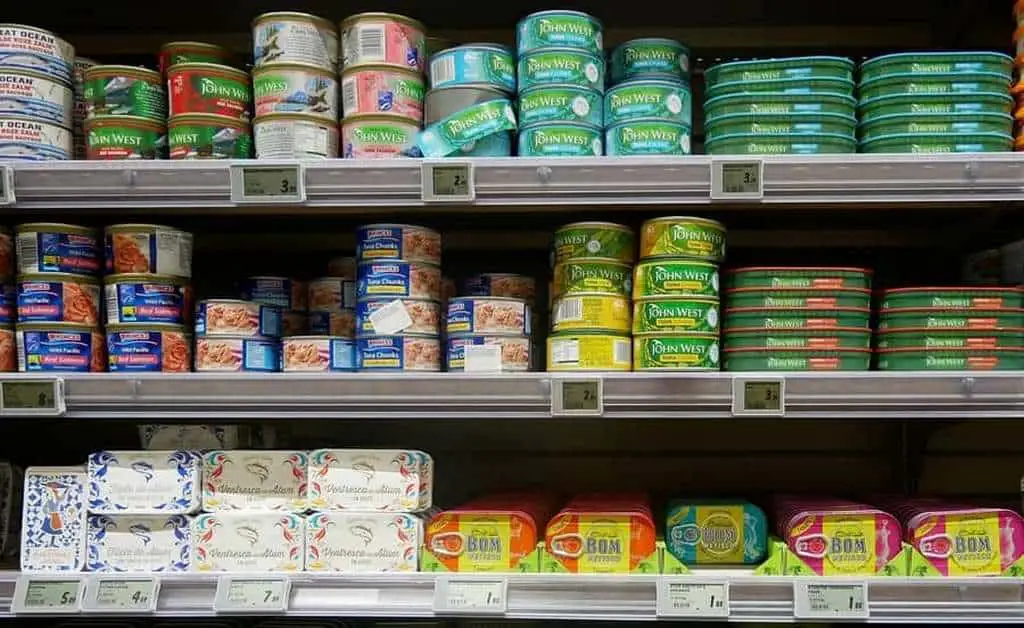
Canned food has been a staple in households for decades, providing a convenient and long-lasting option for preserving various types of food. But what exactly goes into that can of peas or soup? Let’s delve into the world of canned food, exploring its ingredients and the intricate production process that brings these products to our tables.
Ingredients of Canned Food
Canned foods typically contain a combination of fresh ingredients, preservatives, and sometimes additives to enhance flavor and extend shelf life. The process often begins with selecting high-quality, fresh produce or meats. Vegetables and fruits are carefully harvested at their peak ripeness, ensuring optimal flavor and nutritional content.
Common Ingredients in Canned Food:
- Fresh Produce: Vegetables and fruits are the primary components of many canned goods. These are sourced and processed to maintain their texture and taste.
- Meats and Seafood: Canned meats, such as chicken, tuna, and salmon, are cooked before being sealed in cans. This ensures they are safe for consumption even without refrigeration.
- Broths and Sauces: Many canned items are immersed in flavorful broths or sauces to enhance taste. These are often created from a blend of spices, herbs, and seasonings.
- Preservatives: To prevent spoilage, manufacturers add preservatives like salt, sugar, and vinegar or substitute. These ingredients play a crucial role in extending the shelf life of canned goods.
Production Process
The journey from fresh ingredients to a sealed can is a meticulous process aimed at preserving both taste and nutritional value.
- Preparation: The raw ingredients are cleaned, peeled, and cut to the desired size. This step ensures uniformity in the final product.
- Cooking: Depending on the type of food, it undergoes cooking to eliminate bacteria and enzymes. For example, vegetables are often blanched before canning, while meats are fully cooked.
- Filling the Cans: The prepared food is placed into cans, and any additional liquids, such as broths or sauces, are added. This step requires precision to prevent underfilling or overfilling.
- Sealing: Once filled, cans are sealed to create an airtight environment. This process prevents the entry of microorganisms and helps maintain the food’s quality.
- Heat Processing: Sealed canned foods are subjected to heat to eliminate any remaining bacteria and create a vacuum seal. This step is crucial for the preservation of canned goods.
- Cooling and Labeling: After heat processing, cans are cooled before being labeled and packaged for distribution. The labeling includes essential information such as ingredients, nutritional facts, and expiration dates.
Understanding Canned Food Expiration and Shelf Life
Canned food, like any other perishable item, comes with an expiration date. Manufacturers determine this date based on factors such as the type of food, ingredients used, and the processing method.
Understanding the expiration date and the concept of shelf life is vital for ensuring the safety and quality of the food you consume.
How to Read Expiration Dates
Canned goods typically feature a “best by” or “use by” date stamped on the packaging. It’s crucial to keep in mind that this date is merely a suggestion from the manufacturer rather than a strict deadline. Understanding the terminology is important.
- “Best By” Date: This indicates the period during which the product is expected to be at its peak quality in terms of flavor and texture. Consuming the food after this date doesn’t necessarily mean it’s unsafe, but the quality might decline.
- “Use By” Date: This is a suggestion from the manufacturer regarding the last date the product is expected to be at its best. It’s advisable to consume the item before this date for optimal taste and quality.
| Related: Can You Eat Expired Spam or Past the Best by Date? |
Factors Affecting Shelf Life
Several factors can influence the shelf life of canned food, including:
- Storage Conditions: Cans should be stored in a cool, dry place. Exposure to heat and humidity can accelerate the deterioration of the food inside.
- Can Integrity: Damaged or dented cans can compromise the seal, allowing air and bacteria to enter. Inspect cans before purchase and avoid those with visible damage.
- Type of Food: Certain foods, like acidic or high-fat items, have a shorter shelf life due to their composition. It’s essential to be aware of these variations.
- Preservatives: The type and amount of preservatives used in the canning process can influence how long the food remains safe for consumption.
What Happens If You Eat Expired Canned Food?
Now, let’s address the burning question: What happens if you consume canned food past its expiration date? The answer depends on various factors, including the type of food, storage conditions, and the presence of spoilage indicators.
Possible Outcomes of Consuming Expired Canned Food:
- Loss of Nutritional Value: Over time, the nutritional content of canned food may degrade. However, this doesn’t necessarily pose a health risk.
- Changes in Flavor and Texture: The quality of the food may diminish, resulting in changes in taste and texture. This can make the food less enjoyable, but doesn’t necessarily indicate spoilage.
- Risk of Spoilage: In some cases, expired canned food may show signs of spoilage, such as an off-putting odor, discoloration, or a bulging can. Consuming visibly spoiled food can lead to foodborne illnesses.
Signs of Spoiled Canned Food
Knowing how to identify spoiled canned food is crucial for avoiding potential health risks. Keep an eye out for these signs:
- Foul Odor: If the food has an unpleasant or off-putting smell, it’s likely spoiled.
- Unusual Color: Discoloration, particularly if the food appears darker or has strange hues, is a red flag.
- Mold Growth: Any presence of mold, whether on the surface or suspended in the liquid, indicates spoilage.
- Bulging or Damaged Cans: Cans that are swollen, dented, or damaged may have compromised seals, allowing bacteria to enter.
Can You Use Expired Canned Food in Recipes?
The thought of discarding expired canned food might make you cringe, especially when you’re trying to minimize food waste. But can you still use it in recipes without compromising your health? Let’s explore this dilemma.
Using Expired Canned Food in Recipes:
- Consider the Type of Food: Some canned foods, even past their expiration dates, can be used safely in recipes. For example, canned vegetables or beans might still be suitable for cooking, especially if they show no signs of spoilage.
- Inspect for Spoilage Indicators: Before incorporating expired canned food into a recipe, carefully inspect it for signs of spoilage. If there’s an off-putting odor, unusual color, or the can is damaged, it’s best to discard the contents.
- Cooking Can Kill Some Bacteria: The cooking process can eliminate certain bacteria, reducing the risk of foodborne illnesses. However, this doesn’t guarantee the restoration of optimal flavor or texture.
Alternatives to Using Expired Canned Food
If you’re hesitant about using expired canned food in your recipes, there are alternative approaches to consider. These options not only help you avoid potential health risks but also contribute to reducing food waste.
Alternatives to Using Expired Canned Food:
- Donate Non-Perishables: If you have canned goods approaching their expiration dates, consider donating them to local food banks or charities. Many organizations accept non-perishable items, contributing to community support initiatives.
- Composting: If the canned food is no longer suitable for consumption, consider composting. This environmentally friendly option allows you to dispose of the expired items while contributing to nutrient-rich soil for your garden.
- Educate Yourself on Storage Practices: To minimize food waste in the future, educate yourself on proper storage practices. Understanding how to store canned goods optimally can extend their shelf life and reduce the likelihood of expiration.
How Can You Tell If Canned Food Is No Longer Safe to Eat?
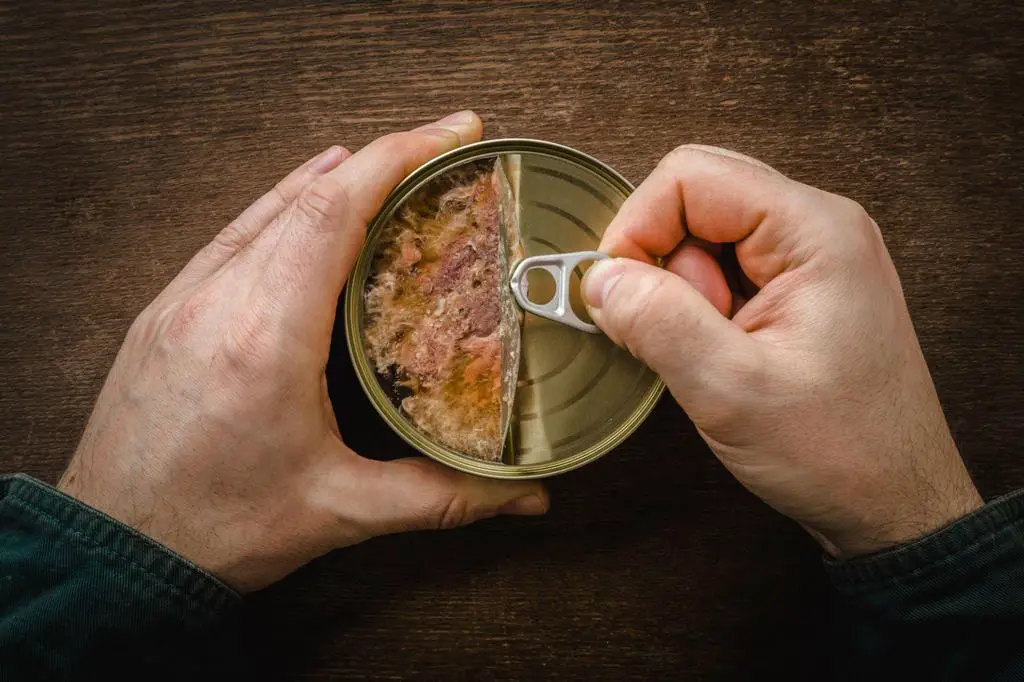
Determining whether canned food is still safe to eat involves more than just checking the expiration date. There are specific signs to look for that indicate potential spoilage.
Indicators of Spoiled Canned Food:
| Signs of Spoilage | What to Look For |
| Foul Odor | Unpleasant or off-putting smell, indicating bacterial growth. |
| Unusual Color | Discoloration, strange hues, or changes in the food’s color |
| Mold Growth | Presence of mold on the food or suspended in the liquid. |
| Bulging Cans | Swollen or damaged cans are a sign of bacterial activity. |
Regularly checking for these indicators can help you make informed decisions about the safety of your canned goods.
Conclusion
In conclusion, while canned food provides a convenient and long-lasting option for preserving various foods, it’s essential to be mindful of expiration dates and signs of spoilage. The production process, including careful selection of ingredients and precise canning procedures, contributes to the overall safety and quality of these products.
Understanding the factors that influence shelf life, proper storage conditions, and how to interpret expiration dates empowers consumers to make informed decisions about the safety and enjoyment of their canned goods. When in doubt, it’s advisable to err on the side of caution and discard any canned food that shows signs of spoilage.
By staying informed and exercising caution, you can continue to enjoy the convenience and versatility that canned food brings to your kitchen without compromising your health and well-being.
FAQs on Safety of Eating Expired Canned Food
Can eating expired canned food make you sick?
Consuming expired canned food can lead to foodborne illness. Bacteria may grow over time, causing digestive issues or more severe health problems.
How can you tell if canned food is expired?
Check for signs like bulging, rust, or unusual odors. Expired canned goods may have compromised seals, indicating potential bacterial contamination.
Is it safe to eat expired canned vegetables or fruits?
Eating expired canned vegetables or fruits can pose risks. The loss of nutrients and potential for bacterial growth make them less safe for consumption.
Does the expiration date on canned food really matter?
Yes, expiration dates are crucial. They indicate when the food may no longer be at its best quality and safety. Consuming items past this date can pose health risks.
Can you get botulism from eating expired canned food?
Yes, expired canned food can be a breeding ground for Clostridium botulinum, leading to botulism. This rare but serious illness can result in paralysis and respiratory failure.
How long past the expiration date is it safe to eat canned food?
It’s best not to consume canned food past its expiration date. Even a short time can lead to bacterial contamination, risking your health.
Can reheating expired canned food make it safe to eat?
No, reheating expired canned food won’t make it safe. It may kill some bacteria, but toxins produced by bacteria can still pose health risks. It’s safer to avoid consuming expired items altogether.




